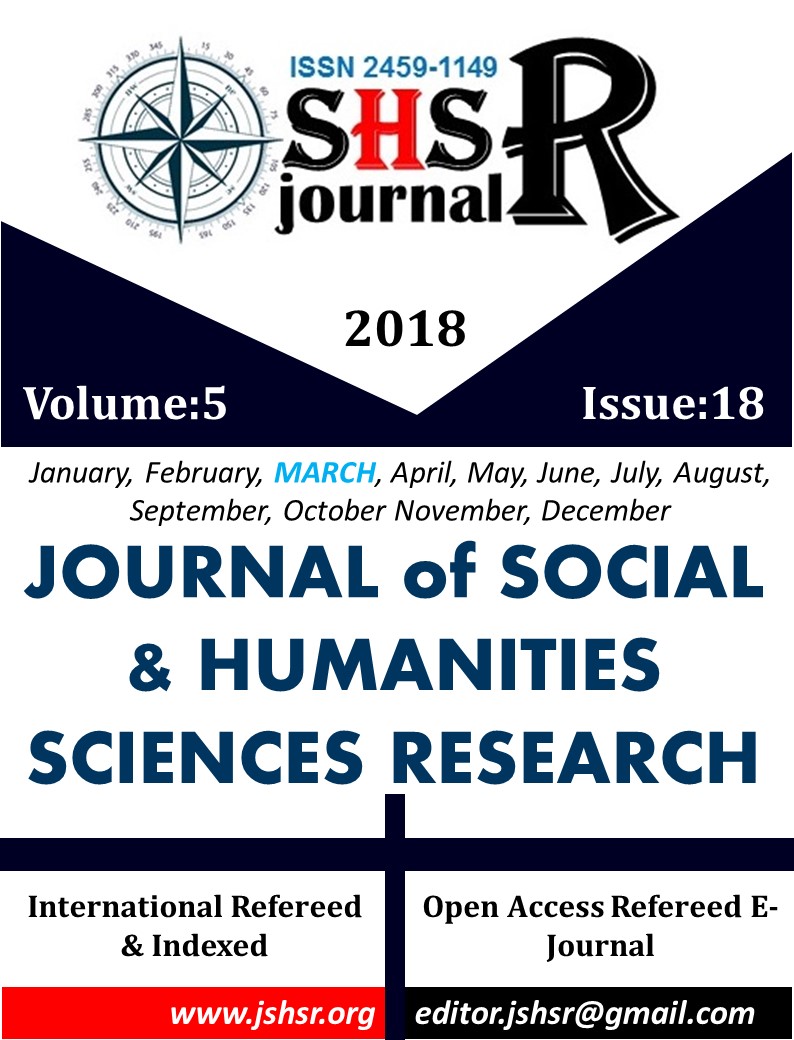MATEMATİK DERSİNE YÖNELİK MOTİVASYON ÖLÇEĞİ GELİŞTİRME ÇALIŞMASI
DOI:
https://doi.org/10.26450/jshsr.341Anahtar Kelimeler:
Matematik motivasyon ölçeği, ölçek geliştirme, motivasyon, matematiksel motivasyonÖzet
Bu çalışmanın amacı matematik dersine yönelik motivasyon ölçeği geliştirmektir. Ölçeği geliştirmek için önce ilgili alan yazın taranarak ve uzman görüşlerine başvurularak 61 maddelik taslak ölçek hazırlanmıştır. Bu taslak ölçek, ilgili alan uzmanlarının ve bir dil bilimi uzmanının görüşüne sunulmuş ve uzmanların önerileri doğrultusunda gerekli düzeltmeler yapıldıktan sonra 49 maddeye düşürülmüştür. 49 maddelik taslak ölçeği 2016-2017 eğitim-öğretim yılı güz döneminde, Balıkesir ili Balya ilçesi Zübeyde Hanım Yatılı Bölge Ortaokulu’nda okuyan 5., 6., 7., ve 8. sınıfta okumakta olan 201 öğrenciye uygulanmıştır. Bu ölçeklerden eksik ve yanlış doldurulan 9 tanesi çıkartılarak 192 tanesi değerlendirmeye alınmıştır. Araştırma verilerinin incelenmesinde SPSS 22.0 paket programı kullanılmıştır. Güvenirlik için yapılan analizler sonucunda madde toplam korelasyonları 0,30’un altında olan ve Cronbach Alpha güvenirlik katsayısını düşüren 9 madde ölçeğe alınmamıştır. Geçerlik için yapılan faktör analizi sonucunda 26 madde 3 faktör (Performansa Yönelik Motivasyon, Matematiksel Doyum, Motivasyonsuzluk) altında toplanmıştır. Bu maddelerden 18’i olumlu, 8’i olumsuzdur. Güvenirlik için kalan 26 maddenin, varimax döndürme sonucu saptanan 3 alt boyut ve ölçeğin tümü için Cronbach Alpha (0.88) katsayıları hesaplanmıştır. Faktörlerin iç tutarlılık katsayısına bakıldığında ise birinci faktörde Cronbach Alpha değerinin .83, ikinci faktörde Cronbach Alpha değerinin .79 ve üçüncü faktörde Cronbach Alpha değerinin .78 olduğu görülmüştür. Bu noktadan hareketle bu ölçek öğretmenler ve araştırmacılar tarafından öğrencilerin matematiksel motivasyonlarını belirlemek için kullanılabileceği sonucuna ulaşılmıştır
İndir
Yayınlanmış
Nasıl Atıf Yapılır
Sayı
Bölüm
Lisans
Telif Hakkı (c) 2018 International JOURNAL OF SOCIAL HUMANITIES SCIENCES RESEARCH

Bu çalışma Creative Commons Attribution 4.0 International License ile lisanslanmıştır.


